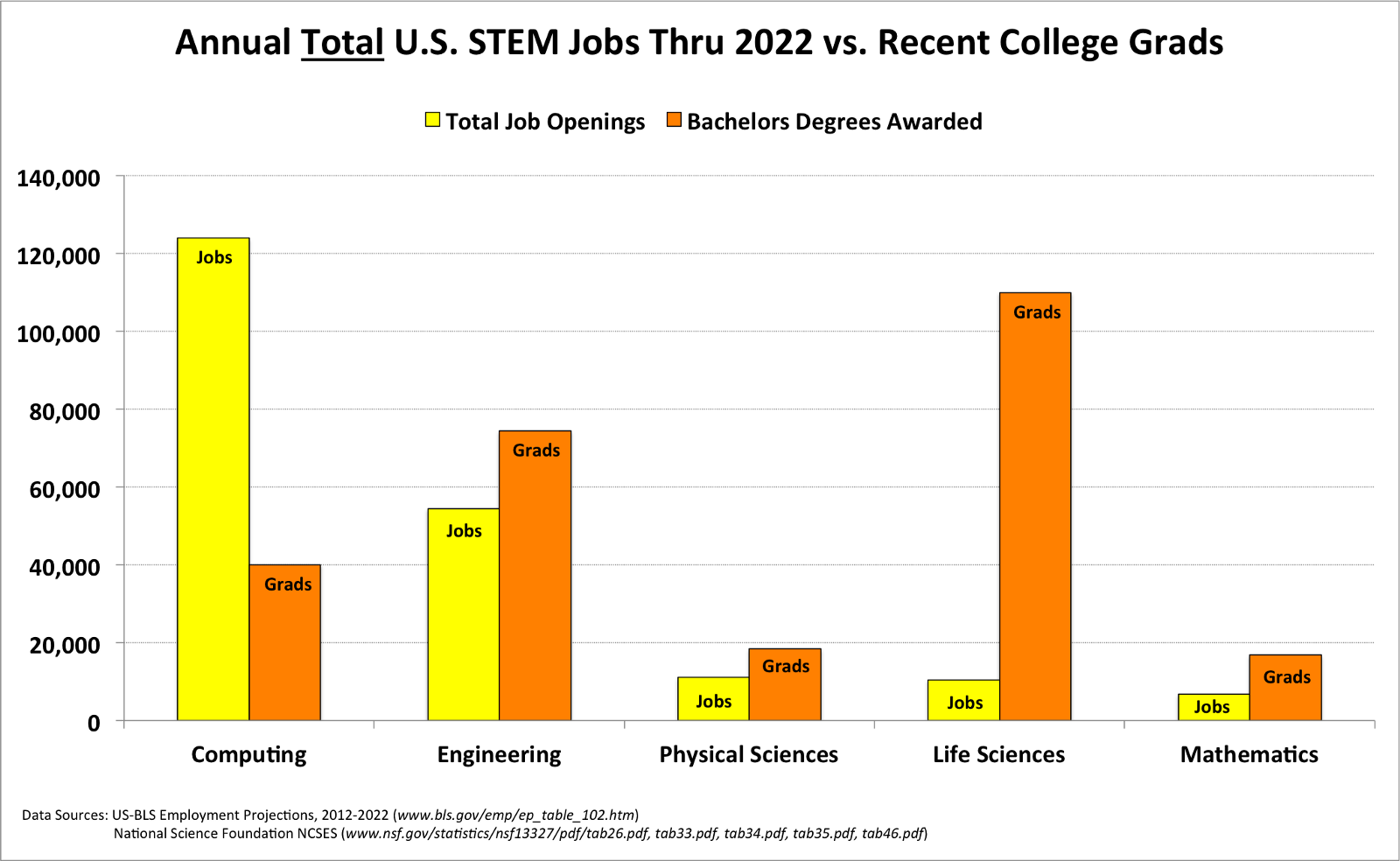
Hire Remote Software Developers in 2025: Complete Guide
Recruiting software developers has always been a challenging endeavor. And the shift to remote work has further complicated the hiring process. The demand for quality software engineers continues to soar, and it is predicted to grow by 22% by 2029, further exacerbating the competition among companies to attract top-notch software developers.
It is crucial to leverage efficient channels and tailor the hiring approach to the new normal of remote work to overcome the above challenges and successfully hire remote software developers.
This blog lists expert tips, strategies, and a list of the best sites to hire remote software developers for your clients.
How to attract a software developer: Convince a Software Developer to accept your offer
It is one thing to find the right software developers, and it is entirely another to keep them interested in your vacancy. Below you will find some of the best ways to motivate the candidate to accept your job offer.
Explain how the position aligns with the Candidate’s Personal Goals
Make sure you talk to your candidates about how you can help them get better at themselves. Talk from their point of view. For developers, it is essential to always stay up to date with technologies and learn new skills. Let them know how your project can help them grow as specialists. Show them what new prospects your project can teach them and how they can be essential to it. For example, being part of a team that develops a cloud-native application protection platform can expose them to cutting-edge security practices and modern application development environments, aligning with their goals for continuous learning and expertise in high-demand tech areas.
Inform them about the rewards and incentives
While growth opportunities are important to developers, do not forget they are also employees. Rewards and incentives for reaching goals and targets in record time are always considered to be lucrative.
Try to find great examples of bonuses for tech teams, sabbatical options, and engagement events, and even order custom awards to show appreciation for their hard work. Likewise, you can also share how the remote workers get items like wallpics wall art, custom prints, and other similar items as a reward and recognition. It’s not always about money. So, it makes sense to focus on the whole experience of the work environment.
Generate Brand Awareness and Good Reputation
Good candidates tend to join good companies. If a candidate knew about your company before you contacted them and heard positive feedback, it’s more likely that they would want to work with you. Understanding small things like how long it takes to develop an app and other technical aspects of your business can also help you set realistic expectations during the hiring process. Hence, positive advertising and a positive general work environment are essential to recruiting developers and other employees. Working on your employer branding should be a must in your recruiting strategy.
A bad reputation for the company makes all hiring processes a real challenge.
Best Recruiting Websites to Hire Remote Software Developers

This graph represents the total number of job openings in the US market as compared to the total number of people graduating in the field of Science, Technology, Engineering, and Math each year. In the computing industry, there are close to 1,20,000 job openings while the average number of people graduating is merely 40,000 which caters to 33.3% of the total demand.
The traditional methods of hiring fail to lure the attention of developers. There are many challenges to it. Most of the time, developers stay connected within geeky communities that are beyond any non-technical person’s reach. Finding a way to get through to these communities to find the best talent is very difficult. As a result, we lose out on the best resources here. Outsourcing IT Development can help bypass these challenges by providing access to highly skilled developers in nearby regions.
Recruiters are left with only two choices.
- Proactively source and engage developers
- Advertise on job boards that developers actually use!
For recruiters, one of the most effective ways to reach out to such talent is through these portals that work exclusively with developers. They are definitely worth a try.
1. Workshape
Workshape is a tech-based hiring platform that believes in doing away with the traditional method of job descriptions and resumes. Their sentiment matching tool uses shapes to show what the candidate’s ideal job is, and the kind of skills that the prospective job expects. This is an interesting premise and appeals to developers. Workshape is based in London and currently serves only the European market.
How does it work?
You create a job opening on Workshape. Their algorithm finds candidates interested in your position along with their projects, job history, and GitHub repo. You can connect with them directly. They promise a high reach-out-engagement rate, quick profile matching, and cost-effectiveness.
Pricing
The prices are different for varied requirements. Workshape allows you to register with them for free and upload your company profile to find out the right plan for your requirements.
2. Honeypot
Honeypot gives you a curated list of developers who might be eligible for your openings. They vet the developers with a code assignment that is thoroughly graded. It also checks the quality of code with various parameters. Honeypot team does a detailed future interest profiling of these candidates. This helps you to understand how they wish to shape their future and how best you can fit it into your company chart.
How does it work?
Register on Honeypot, set up your profile, and start searching for developers. You can identify candidates that interest you and directly invite them to interview. Honeypot also offers free visa support to speed up the hiring process. They also guarantee a high rate of responsiveness.
Pricing
Honeypot doesn’t charge until you have hired a developer. Once you’ve hired, they charge a 15% commission. They also offer a three-month full refund policy in case either party is not happy about making the decision.
3. Stack Overflow
StackOverflow is the world’s largest and one of the most trusted online developer communities. More than 50 million developers visit this network and exchange knowledge.
How does it work?
Stackoverflow has a very consultative process. A representative from the team jumps on a call with you to understand your recruiting process. This helps them understand what would best fit your company. Based on that, they profile your company to attract good talent. Stackoverflow helps you connect within this community through candidate search, company ads, and more. They also provide an analytics team that will optimize and help you hire throughout the period.
Also, check The hidden way of sourcing incredible developers on stackoverflow
Query to source Python developers on StackOverflow
SELECT u.Id AS [User Link],
u.DisplayName,
u.Location,
u.WebsiteUrl,
u.AboutMe,
u.Views,
u.UpVotes,
u.DownVotes,
u.Age
FROM Users u
JOIN (
SELECT DISTINCT UserId
FROM Badges
WHERE LOWER(Name) IN (‘python’, ‘boost-python’, ‘cpython’, ‘ipython’, ‘ipython-notebook’, ‘python-2.6’, ‘python-2.7’, ‘python-3.x’, ‘python-3.6’, ‘python-asyncio’, ‘python-3.5’, ‘python-datetime’, ‘python-decorators’, ‘python-docx’, ‘python-imaging-library’, ‘python-3.4’, ‘python-idle’, ‘python-mock’, ‘python-module’, ‘python-internals’, ‘python-multiprocessing’, ‘python-multithreading’, ‘python-requests’, ‘python-sphinx’, ‘python-unicode’, ‘python-xarray’, ‘python-3.3’, ‘mysql-python’) AND
Class IN (1, 2, 3) AND
TagBased = 1
) tag_badges
ON tag_badges.UserId = u.Id
WHERE LOWER(Location) LIKE ‘%bay area%’ OR
LOWER(Location) LIKE ‘%san francisco%’ OR
LOWER(Location) LIKE ‘%santa clara%’ OR
LOWER(Location) LIKE ‘%san jose%’ OR
LOWER(Location) LIKE ‘%silicon valley%’ OR
LOWER(Location) LIKE ‘%cupertino%’ OR
LOWER(Location) LIKE ‘%palo alto%’
Query to source Django developers on Stackoverflow
SELECT u.Id AS [User Link],
u.DisplayName,
u.Location,
u.WebsiteUrl,
u.AboutMe,
u.Views,
u.UpVotes,
u.DownVotes,
u.Age
FROM Users u
JOIN (
SELECT DISTINCT UserId
FROM Badges
WHERE LOWER(Name) IN (‘django’, ‘django-admin’, ‘django-cms’, ‘django-class-based-views’, ‘django-forms’, ‘django-models’, ‘django-migrations’, ‘django-authentication’, ‘django-celery’, ‘django-allauth’, ‘django-queryset’, ‘django-socialauth’, ‘django-testing’, ‘django-users’, ‘django-rest-framework’, ‘django-orm’) AND
Class IN (1, 2, 3) AND
TagBased = 1
) tag_badges
ON tag_badges.UserId = u.Id
WHERE LOWER(Location) LIKE ‘%bay area%’ OR
LOWER(Location) LIKE ‘%san francisco%’ OR
LOWER(Location) LIKE ‘%santa clara%’ OR
LOWER(Location) LIKE ‘%san jose%’ OR
LOWER(Location) LIKE ‘%silicon valley%’ OR
LOWER(Location) LIKE ‘%cupertino%’ OR
LOWER(Location) LIKE ‘%palo alto%’
Also, check How to use SQL query generator to source candidates on Stackoverflow?
Pricing
Once you register on Stack Overflow and upload your company profile, the sales team will get in touch. They will understand your requirements and suggest the best plan for you.
4. PowerToFly
Understanding the power of diversity hiring is important to businesses in today’s world. Diversity is at the top of the agenda for most recruiting leaders. Powertofly is designed to make that easier for you. PowerToFly is a portal that connects women with companies that are gender diverse and inclusive. They give you access to vetted, underrepresented female engineers within a month of your job posting.
How does it work?
In the first week, you share all the details with your PowerToFly associate and they will scan their already vetted database in 143 countries and more than 3,576 cities. In the second week, you are presented with candidates who are interested to join and would do so immediately. Finally, you start interviewing them in week three, make your choice and extend an offer. As simple as that!
Pricing
PowerToFly offers two kinds of subscription plans. The first one is basic and gives you access to hiring for a remote job at the cost of $298 per job ad for a month. The diverse engagement plan is customized with extra features, meant for those looking to hire on a long-term basis.
5. The Muse
Muse is not built specifically for developers. However, it’s a job board that helps companies stand apart in a sea of job postings. It works with you to develop your employer brand and creates unique assets for you. Muse helps you stand apart in a sea of job postings and helps you attract your candidates with your culture and perks!
Also, check The death of a job board
How does it work?
At first, you talk to a Muse representative and they help you uncover and amplify your employer brand. Their team works with you to create videos, websites, and other custom assets for you to attract your talent. Muse also has its own job boards that allow candidates to sort through companies based on cultural values and perks.
Pricing
The pricing for Muse is not public. Due to the nature of its engagement, I think the price would vary in each case.
6. Builtin Network
Builtin network is a network of different websites and a localized community. It has chapters in New York, Seattle, Colorado, Chicago, Boston, and Austin.
How does it work?
Builtin is less of a job board and more of a community. It has different companies and other members of the tech as community members. Each chapter runs its own operations, events, and newsletters. You can purchase job slots that are then circulated with community members as well as hosted on their website.
Pricing
Builtin has very transparent pricing published on each chapter’s page. For example, BuiltinNYC charges $99/month for one job slot, $249/month for 3 job slots, and a custom plan for a premium membership. You have to talk to their representative for a premium membership.
7. Toptal
Whether you’re a big company or a small start-up, at Toptal, you can find experts in top programming languages like Javascript, Node.js, etc. Toptal’s matching process considers various important factors, such as industry experience, skill level, and availability. Look for Toptal’s list of freelance developer profiles that are segregated according to your desired experience (e.g., familiarity with JavaScript SEO challenges) or city.
Working with Toptal ensures that an industry expert works with you to understand your project needs. Within days, you will be matched with the right developer (average time 24 hours). Furthermore, you can work with your developer for a trial period, where you pay if you are satisfied!
8. Fiverr
Fiverr helps to segregate potential candidates by displaying each individual’s ratings and reviews from past employers. It also provides 24/7 support. This allows users to make well-informed decisions.
With millions of experienced software engineers in the network, Fiverr makes your job easier by classifying them into 2 categories – Fiverr Pro and Fiverr Business. With Fiverr Pro, you can hire individual remote developers at budget-friendly rates. But for high-end tech projects that require a team of remote developers, you can go with Fiverr Business.
Regardless of your development category, Fiverr also ensures payment protection through project-based contracts.
9. Upwork
Top brands like Microsoft, GoDaddy, and Airbnb highly favor upwork.
It has over a dozen categories and over 12 million professionals for you to choose from. But it classifies developers using four distinct talent badges, each of which describes the freelancer’s work quality, delivery track record, and level of experience, which makes it easier to assess the capabilities of potential candidates.
Not just that, but you can also find independent agencies that can help you with your development needs with their own professional, specialized teams.
Its unique features include AI-assisted talent matching and built-in tools to streamline onboarding and collaboration with remote teams.
10. X-Team
With X-team, you can hire remote developers for full-time positions and part of in-house teams. Flexible contracts allow you to scale up or down according to your project needs and maintain complete control over project timelines and workflows.
Less than 1% of X-team applicants get hired, ensuring a thorough vetting process for each. X-team strives to provide you with the best talent from all over the world, across countries and time zones, to fit your needs. Moreover, X-Teamers work with you for as long as the project takes; some have been working with the same partner for years.
11.Dice
Dice specializes in tech jobs, making it easier to find software developers. Empowered by AI and a quality assurance team, Dice ensures applicants’ qualifications are perfectly verified. 92% of candidates on Dice are actively seeking projects to be part of, and this high level of candidate engagement increases the probability of finding the perfect match for you.
You can access various tools at Dice to simplify your job posting and resume reviewing processes. Though a few hundred dollars cost is typically involved, the potential returns make it a worthwhile investment.
12. Trio
Trio saves you the intense and unending troubles of the recruitment process and carries out its intensive filtration process. All you have to do is talk to these dedicated team services and lay out your needs, and you’ll receive a list of thoroughly vetted developers. Once you pick your candidates, they waste no time and start immediately – often within 1-2 weeks.
However, you can’t hire individual developers at Trio – you must hire a team. Moreover, it is not the cheapest option on the market, but it does aim to provide worthy, top-notch talent.
It caters to small and medium-sized businesses and offers flexibility to hire developers for long-term commitments as well as short-term tasks. Trio also takes the pressure off companies by managing payroll, benefits, and compliance.
13. Arc
The best thing about Arc is that it hires developers using a Silicon Valley standard reviewing process. A strict manual screening process is also in place, which ensures you hire only the top developers. Furthermore, it is quick to hire, taking approx. 24-72 hours for contract roles.
Arc caters to companies seeking developers for freelance, full-time, or remote team positions. It also has the benefit of a 3-month trial period. Moreover, it takes data-driven decisions to identify which developers you should hire next.
You can start working with the developer directly after making a hiring decision. An added advantage is that an engagement manager from Arc helps you take care of all the paperwork and payment processing.
14. Aloa
Whether you require frontend or backend developers, mobile development experts, or UX/UI developers, Aloa has an extensive talent pool to cater to your requirements. A less than 1% acceptance rate helps pair you with the best developers and agencies.
It also offers a dedicated client-facing status tracker, which keeps you informed about the progress of your project and team. Aloa allows for easy integration with Slack for seamless communication and file sharing.
Alcoa’s experts also deliver performance reports every 2 weeks from the start till the project’s end, guaranteeing transparency and progress.
15. Turing
Turing uses the power of AI-driven vetting and has a pool of 2 million developers from 150 countries. With Turing, you can curate a team of developers across various industries such as eCommerce, healthcare, fintech, education, etc.
With over 100 skill categories, you can assemble the best Silicon Valley-grade programmers in a maximum of 4 days. Not only this, but Turing also selects outstanding communicators who can proactively take ownership of businesses and their objectives without micromanagement.
Daily updates and automated controls such as automatic time-tracking and virtual daily stand-ups help smoothen your software development process. What’s more, it also includes a trial period of 2 weeks!
16. Remotebase
At Remotebase, you can hire the top 1% of remote developers within 24 hours, with a minimum 4-hour overlap of time zones. With a Silicon Valley-standardized vetting process in place, Remotebase provides top-class talent.
A unique feature of Remotebase is that it also regularly reviews its performance to maintain high-quality outcomes throughout the project. All teams also undergo regular training sessions, which ensures a high level of professionalism.
You can access the 2-week free trial to determine the company’s value without paying anything.
Moreover, Remotebase boasts 90% faster hiring and developers who are exceptional at coding and have brilliant soft skills!
17. CONTUS Tech
CONTUS Tech is a tech-based software development company that tailors innovative solutions to client needs. They have been serving the industry for more than a decade. The outstanding aspect of CONTUS Tech is that you can hire a developer in less than 48 hours. This unique approach appeals to businesses seeking the ideal development partner. CONTUS Tech is based in India and serves clients globally.
How does it work?
You can provide your project requirements by filling out the form on their website. Their salesperson will contact you within 24 hours and start discussing your project requirements. They will then show you a list of experienced developers, and you can choose from the list. You can connect with the matched developers directly. They deliver the completed product to you.
Pricing
CONTUS Tech offers flexible pricing models based on project scope and requirements. You can contact them directly and discuss your project details to determine the right pricing plan, whether you need an individual developer or a dedicated team.
Check out these platforms to recruit developers and tech talent much faster!
Wrap Up
All in all, it is not easy to hire software engineers that fit your requirements perfectly. The days of employees submitting their CVs to open vacancies are gone, and recruiters face many challenges in hiring tech talent. However, understanding the IT market can help find the best candidates and motivate them to accept your offer. Use the tips mentioned above and explore new hiring methods to fill your open vacancies successfully.
Sagrika Jain is an accomplished Content Marketing Lead with over 14 years of experience specializing in the HR tech niche. She holds a Master’s degree in Mass Communication and an MBA with a specialization in Human Resources. Leveraging her deep expertise in crafting SEO-optimized and social media-friendly content, Sagrika develops insightful, strategy-driven materials that integrate effective communication techniques with cutting-edge HR practices. Her work empowers organizations to achieve their strategic goals and enhance operational effectiveness.
Related Posts
Leave a Comment Cancel reply
Table of Contents



Sagrika Jain